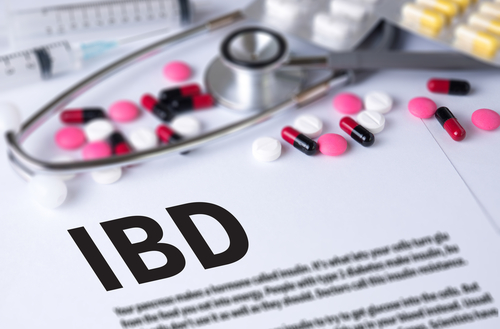Editor’s note: This is the first installment in a series of columns about the similarities and the differences among IBD, Crohn’s, colitis, IBS and celiac disease.
Inflammatory bowel diseases like Crohn’s, ulcerative colitis (UC) and the other autoimmune diseases of the gastrointestinal tract can be very confusing and hard to recognize. These diseases can be so different, and yet alike, that the distinctions between them can be hard to understand. Knowing what these differences are, and which disease you or your friends suffer from, can help with understanding IBD. These many differences and similarities are the focus of this series.
Inflammatory bowel disease
Inflammatory bowel disease, or IBD, is considered an autoimmune disease. It’s manageable, but not curable. Bowel diseases like Crohn’s and ulcerative colitis often are just assumed to be the same thing. And, while they are both members of the autoimmune disease category as IBD, and have many similarities but several differences, both are believed to be caused by things like genetics, environmental factors and an immune system gone renegade. Neither has a cure.
Both diseases cause inflammation and symptoms within the patient’s digestive system, causing flares with times of remission, but only Crohn’s plays hopscotch throughout the bowels, with both inflamed portions and relatively healthy bowel walls.
Crohn’s disease
Under the umbrella of IBD, Crohn’s disease can affect the patient top to bottom, from hair to feet, mouth to legs, inside and outside. Unlike ulcerative colitis, which affects the inside lining of the gastrointestinal tract focusing on the colon in most cases, Crohn’s disease can affect any layer and any portion of the bowel, leaving ulcerations, inflammation and many other problems. Crohn’s disease often requires more extensive scoping, as well, because of a high prevalence of small bowel inflammation.
Ulcerative colitis
Ulcerative colitis, or UC, also falls under the IBD umbrella and focuses on the large bowel and the colon for the majority of cases, and it causes inflammation to the inner lining. Unlike Crohn’s disease, UC appears in one area, usually, while Crohn’s can be found anywhere within the body. Ulcerative colitis, although as serious as Crohn’s disease, focuses on one portion to go rogue, with many symptoms suffered in Crohn’s, too, such as bleeding, pain and rectal problems.
Celiac disease
While celiac is an immune reaction caused by gluten, it also is considered a digestive disorder that can damage the bowel walls, too. Although celiac is not a part of the IBD umbrella, gluten causes an immune response to attack within the body, much like Crohn’s and ulcerative colitis. Unlike Crohn’s and ulcerative colitis, celiac can be diagnosed with a blood test and/or biopsy and there are no tests to find IBD.
Irritable bowel syndrome
IBS, or irritable bowel syndrome, and IBD are two of the most confused. IBS, although uncomfortable, does not create ulcers or lining destruction to the bowel, but it does occur in a larger number of patients.
An article for “Everyday Health” explains: “IBS is a far more common digestive ailment than IBD, affecting as many as 20 percent of Americans.” Inflammatory bowel diseases affect about 1 million Americans, or about 0.3 percent of the population, it says.
IBD, Crohn’s disease, ulcerative colitis, celiac and IBS are different diseases or ailments of the bowels. In this series, I will focus on each, explaining what they are and how they are similar, as well as different from each other, helping to separate them from general assumptions.
I hope to inform others about what IBD and IBS entail, how patients are diagnosed, how they suffer, how they find relief, and I hope to help make distinctions among these conditions clear for those who are unaware or unfamiliar.
For me and my Crohn’s, It Could Be Worse.
***
Note: IBD News Today is strictly a news and information website about the disease. It does not provide medical advice, diagnosis, or treatment. This content is not intended to be a substitute for professional medical advice, diagnosis, or treatment. Always seek the advice of your physician or another qualified health provider with any questions you may have regarding a medical condition. Never disregard professional medical advice or delay in seeking it because of something you have read on this website. The opinions expressed in this column are not those of IBD News Today, or its parent company, BioNews Services, and are intended to spark discussion about issues pertaining to IBD.



Hi just wanted to say this sounds like a great read and I’m excited to see what’s to come. I do want to point out you say “celiac can be diagnosed but no tests to find IBD”. As someone with Crohn’s I’ve gone through the testing, there is a way to diagnose IBD. It is with colonoscopies and endoscopic procedures as well biopsies of tissue in the intestine.
Looking forward what you have to publish next.
I understand what you are trying to say, but in my experience Celiac can be tested with a blood test or two, while IBD can take years, a number of scopes, scans, blood tests that can possibly show vague inflammation, and even then it can take longer. I just mean it takes a number of things and doctors judgment to diagnose Crohn’s or colitis because there are no specific tests for IBD. Sometimes it could even take surgeries before knowing. If that makes sense?
I understand what you are saying as I stated above I have gone through multiple testing to get my diagnosis I have not said all I went through or how long it took. As someone who has been diagnosed for over 10 years I found it misleading to say there’s no tests to find it, I can only imagine how someone new to the concept of Crohns or colitis might read that.
A better way to word it is there is no specific test. This is educational and important for people to read but if the information is not given correctly then that leads to misconspections about getting a diagnosis and the disease itself. I hope that clears up what I meant.
I do understand this is not medical advise, you are trying to educate others with what you know.